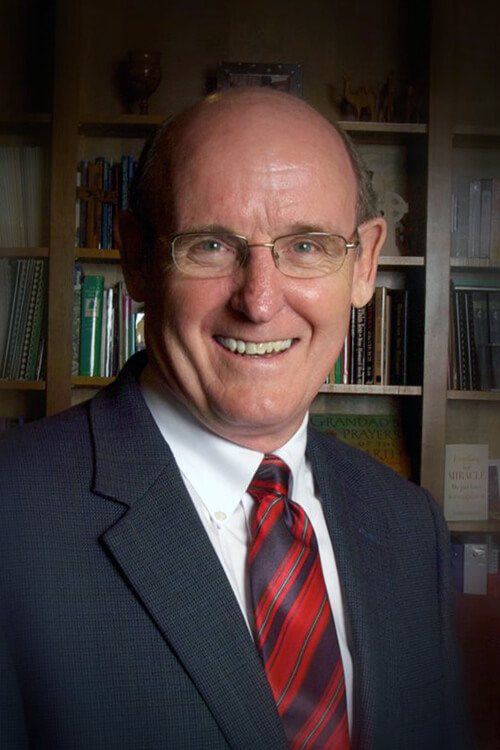Key points:
- The Ministerial Education Fund helps United Methodist clergy-in-training afford seminary.
- General Conference delegates will consider a proposal to reduce the fund by almost 50%.
- Seminary president Dr. Kent Millard says a major cut to the fund would be short-sighted, exacerbating seminarians’ debt and causing new clergy to be less effective because of worry over their debt load.

Photo courtesy of United Theological Seminary.
Commentaries
Delegates to the upcoming United Methodist General Conference will consider a proposal to reduce the Ministerial Education Fund by almost 50%, beginning Jan. 1, 2025.
The fund is well-named, providing scholarships for United Methodist students who attend United Methodist seminaries and intend a ministry career.
Speaking as a seminary president, one of our big challenges is that the average debt for students who borrow to attend seminary is about $35,000 at graduation, according to the Association of Theological Schools in the United States.
Meanwhile, the beginning salary for United Methodist pastors is around $45,000-$50,000 annually. So some pastors are in debt long after seminary. When pastors worry about how they are going to provide for their families and repay their educational debt, the stress can decrease pastoral effectiveness.
When seminaries are able to provide more scholarships, students graduate with less debt. In 2016, 22% of our students at United Theological Seminary graduated with no educational debt incurred in seminary. In 2023, 41% of our students graduated with no such debt. That’s because our donors significantly increased their giving for scholarships.
In 2023, United had 210 United Methodist students out of a total enrollment of 547. We handed out $1,113,000 in scholarship support for these United Methodist students who requested a scholarship.
We are grateful that the Ministerial Education Fund provided $854,000 of that $1,113,000 pool of scholarships.
If the Ministerial Education Scholarship Fund is reduced by 50%, United Theological Seminary would see a reduction of about $427,000 in scholarships available for our United Methodist students next year and each year thereafter. All of our 13 United Methodist seminaries in the U.S. would receive a similar 50% reduction in scholarship support for United Methodist students. Upshot: Students are likely to graduate with significantly more educational debt.
We realize that reducing the general church budget is necessary because of disaffiliations and the accompanying decline in apportionment payments, but a nearly 50% reduction in scholarship support for the education of our future pastors is shortsighted. It does not bode well for developing faithful and fruitful Christian leaders for The United Methodist Church for the years ahead.
St. Paul writes to the Christians in Rome, “Don’t run up debts, except for the huge debt of love you owe each other” (Romans 13:8, The Message). Persons who feel called by God to serve as Christian leaders should not have to run up debts to become ordained pastors when all they want to do is pay the “debt of love we owe each other.”
Subscribe to our
e-newsletter
One of our United Methodist students told me recently that God had been calling her to full-time Christian service since she was a teenager. She said she kept ignoring that call because she didn't want to go into debt for a seminary education. However, the “hound of heaven” wouldn’t let her go so she finally said “yes” to God and enrolled at United.
When she was offered a $5,000 scholarship from the Ministerial Education Fund, she almost cried tears of joy. She hadn't expected that someone would give her a scholarship as a second-career student. Thanks be to God for the Ministerial Education Fund!
I pray that the delegates to the General Conference in Charlotte, North Carolina, will find some way in their deliberations to continue to provide significant scholarship support for the students God calls to serve as faithful and fruitful Christian leaders in The United Methodist Church.
Dr. Kent Millard is president of United Theological Seminary in Dayton, Ohio.
News media contact: Tim Tanton or Joey Butler at (615) 742-5470 or newsdesk@umcom.org. To read more United Methodist news, subscribe to the free UM News daily or weekly digests.


